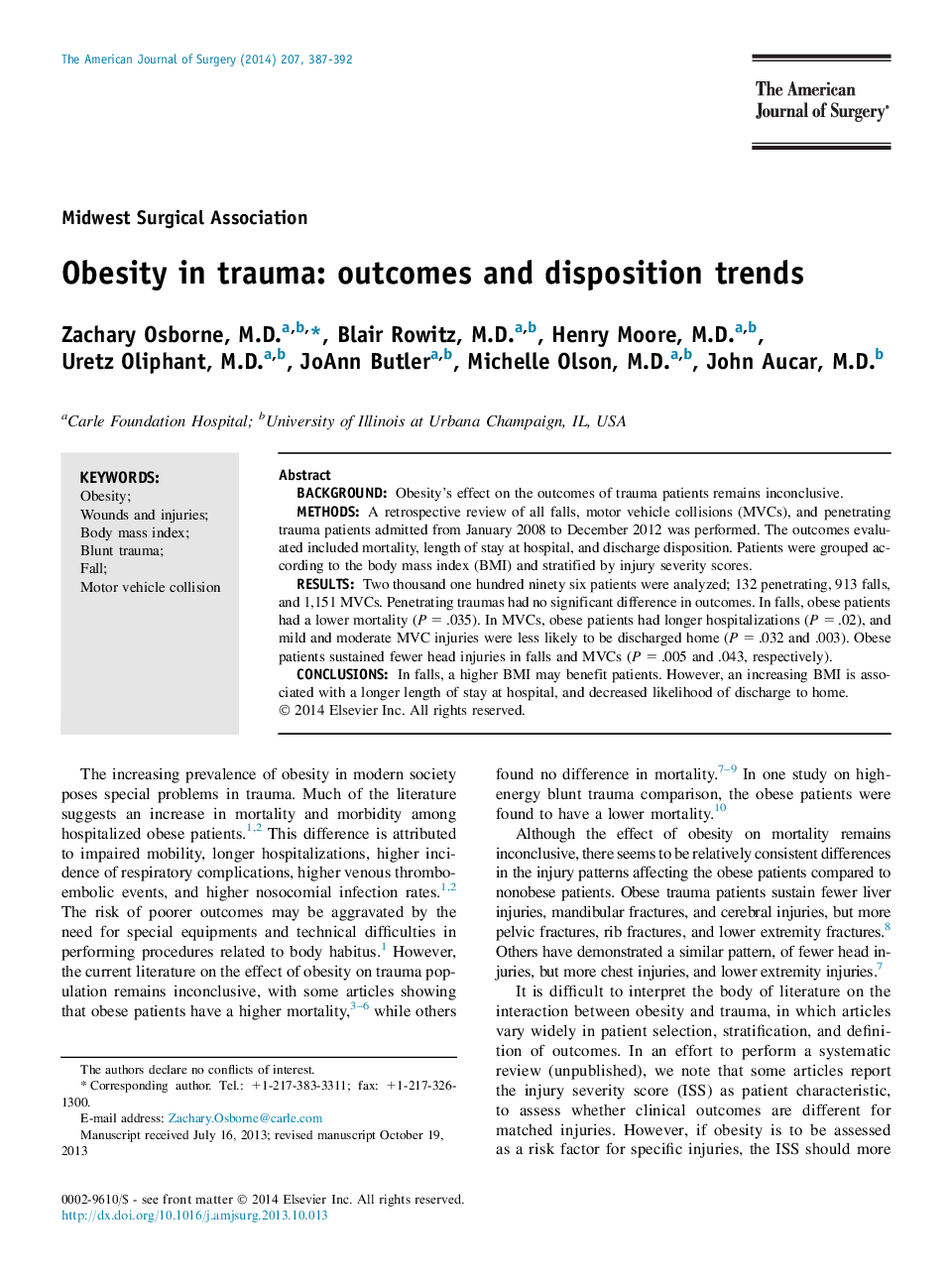| Article ID | Journal | Published Year | Pages | File Type |
|---|---|---|---|---|
| 4278703 | The American Journal of Surgery | 2014 | 6 Pages |
BackgroundObesity’s effect on the outcomes of trauma patients remains inconclusive.MethodsA retrospective review of all falls, motor vehicle collisions (MVCs), and penetrating trauma patients admitted from January 2008 to December 2012 was performed. The outcomes evaluated included mortality, length of stay at hospital, and discharge disposition. Patients were grouped according to the body mass index (BMI) and stratified by injury severity scores.ResultsTwo thousand one hundred ninety six patients were analyzed; 132 penetrating, 913 falls, and 1,151 MVCs. Penetrating traumas had no significant difference in outcomes. In falls, obese patients had a lower mortality (P = .035). In MVCs, obese patients had longer hospitalizations (P = .02), and mild and moderate MVC injuries were less likely to be discharged home (P = .032 and .003). Obese patients sustained fewer head injuries in falls and MVCs (P = .005 and .043, respectively).ConclusionsIn falls, a higher BMI may benefit patients. However, an increasing BMI is associated with a longer length of stay at hospital, and decreased likelihood of discharge to home.
